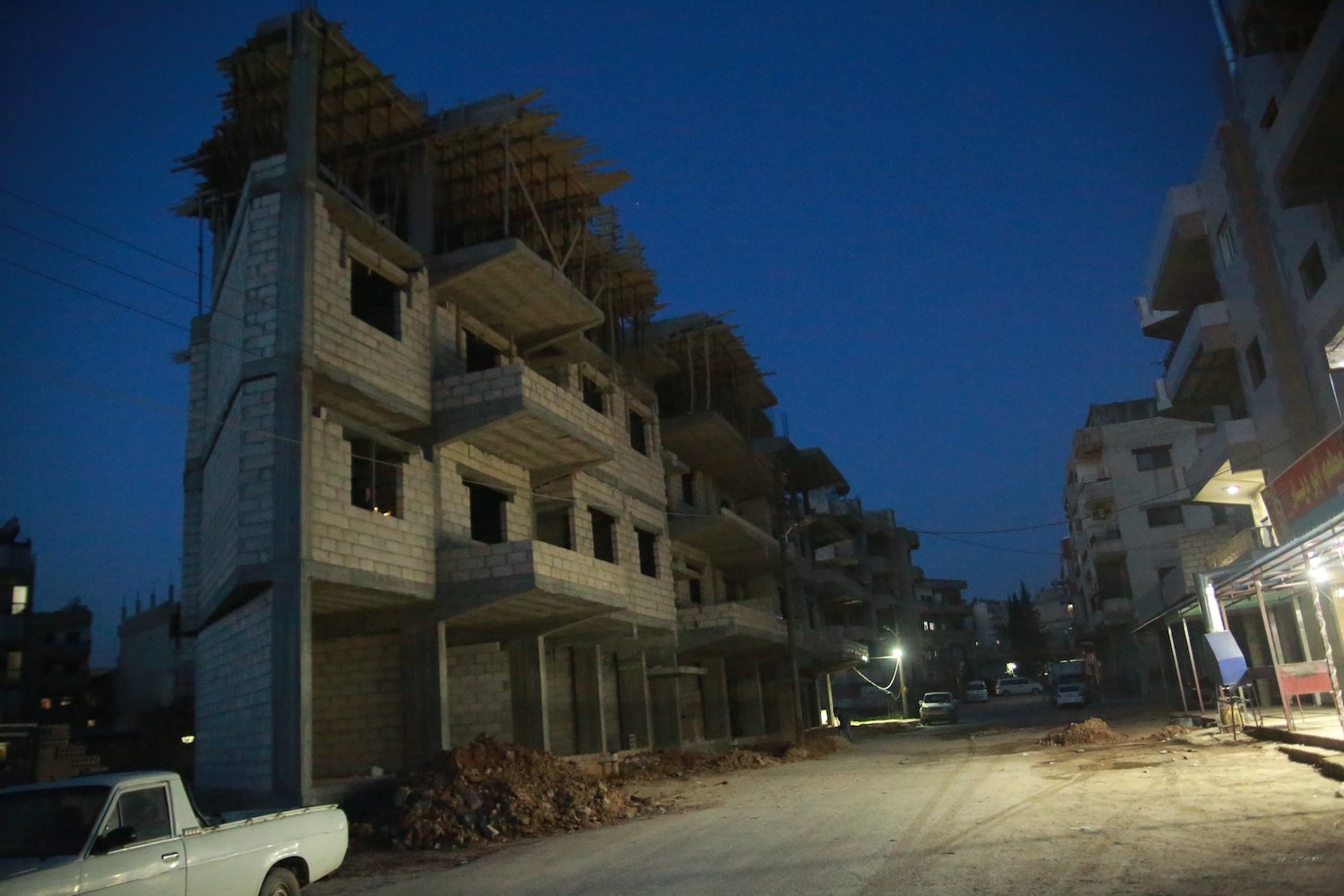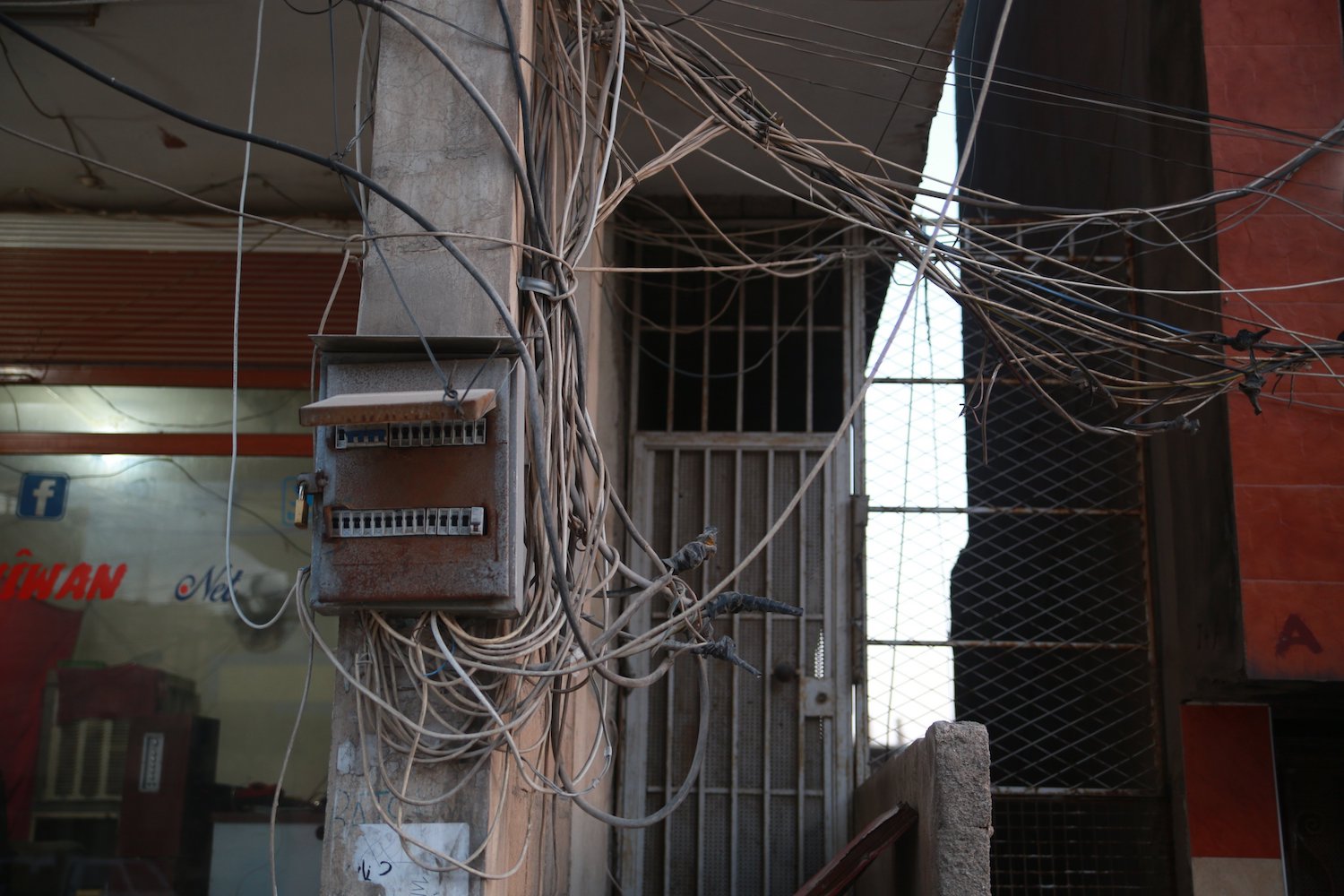The Trolls Accused Me of ‘Crypto-Colonialism’ in Syria – I’m Listening
Cryptocurrency isn't colonialism in Syria – it's a step in ensuring the technological autonomy of the region.
:format(jpg)/cloudfront-us-east-1.images.arcpublishing.com/coindesk/UTJT4J372JGO3NVFXPJTEHTO4Y.jpg)
Rachel-Rose O'Leary is a reporter at CoinDesk, covering how cryptocurrencies are being used in areas of economic, social and political unrest.
This article is part of her ongoing dispatches from Rojava, Syria.
"Crypto-colonist."
"Neo-fascist."
These are two of the more critical responses to my relocation to North Syria, also known as Rojava, to assist in a newly formed academy of media and technology. And while the comments represent some of the worst feedback I could imagine since it's a dark interpretation (one I don't buy into) of what I'm doing here, for the most part, I was overwhelmed by messages of support.
Wolfgang Spraul, a leading coder at ASIC manufacturer Linzhi, spoke of his friend, Bassel Khartabil, a programmer who was executed by the Syrian regime in 2015 following three years of incarceration and torture. The execution was part of the ongoing and brutal repression of technological innovation by Bashar al-Assad, the President of Syria.
When the news of Khartabil's death came to light in 2017, it was a deep shock to the open-source community – shock that continues to resonate today.
“Stability is a miracle, so fragile,” Spraul wrote to me. “Be aware you have friends and reach out.”
Another email pointed to a legal system for stateless societies called Creative Common Law, encouraging me to consider the material, asserting that “It would be so wonderful if the world of stateless legal systems and overseas countries wanting a decentralized world could actually connect!”
While I don’t agree with everything in the legal system – in particular, its hard emphasis on property rights – I'd encourage everyone to read the specs.
The interactions convinced me that I am on the right path – even if my mother was quick to remind me that at least some of the contact had been made by "CIA, ISIS sympathizers and the Russians," trying to pry me for details.
Finally, in an email that reminded me how everything is interwoven, Greg Colvin, the leading programmer behind ethereum’s virtual machine, the EVM, mourned the Syrians that had been killed in last month’s New Zealand terror attack.
While he feared U.S. allies might eventually abandon the Kurds in Syria, he added:
 Smoke fills the sky on Newroz, Qamishli.
Smoke fills the sky on Newroz, Qamishli.
Feeding the trolls
As such, most of these interactions stood apart from the usual barrage of trolling that has followed my work on ethereum.
While the ethereum community has a gentle heart, it can be brutal in cyberspace – something testified to by the fact that one of its brightest contributors, former Parity release manager Afri Schoeden was effectively bullied out of his position last month. A source as well as a friend, not only did Schoedon play a crucial role in the overall coordination of the blockchain, but he was also one of its more critical voices – often trying to forge a link between the developer elite and an increasingly disenfranchised community.
Thankfully, even as Schoedon has fallen silent, other developers are continuing the tradition of challenging the internal powers that be.
If bullying to the point of banishment is how ethereum’s online community treats its most faithful contributors, imagine then, how it treats reporters.
On the ethereum beat, I received regular direct messages from one man, reminding me that I was wasting my life.
Another man, who I later learned had lost his savings trading ether, sent me persistent emails with a single word: "cunt."
 A street at night, Qamishli
A street at night, Qamishli
But all of this feels very far away now, as the proximity of war has driven things into focus. Aspects of my life that used to feel important have faded into the background. And while crypto-colonialism and neo-fascism aren’t ideal feedback, at least they’re interesting political criticism – miles away from the low-level name-calling I had become accustomed to.
Crypto-colonist – a term popularized by Naomi Klein – is a comment at least worthy of rebuttal. (It is a term primarily associated with Brock Pierce’s attempt to build a crypto city in Puerto Rico.)
On the surface, our projects have similarities, as both are fueled by a desire to use decentralized technologies at the societal level. However, Pierce’s work, while he has repeatedly insisted is in the best interests of the local population, seems characterized by an insensitivity to the conditions in which it is ensnared.
To highlight this, Klien describes two political movements that are active in Puerto Rico in the wake of Hurricane Maria – there are the community-driven efforts to repair the island with an ecological and democratic focus and then there's a government plan to entice foreign investors with tax benefits and privatize the island, while continuously displacing its native population.
Pierce’s work, Klein argues, is tied to the latter.
Coupled with statements from Pierce and his friends (such as, “This is where you’re going to bring your wife and kids and build the New World”), the so-called "Puertopia" is largely viewed as a project that is disinterested in the needs of the local population, instead focused on securing a sandbox for wealthy technocrats.
Not uninvited
 Electricity cables, Qamishli
Electricity cables, Qamishli
Like Puerto Rico, North Syria and the Kurdish people have had a long history of colonization.
It is primarily that history, combined with the revolution’s war on fascism and the state, that inspired me and many other Westerners to offer support here. Some came from colonies inside the West; others were born into colonial empires and wanted change.
Yet we haven’t come uninvited, and in all cases, intend to work hand-in-hand with locals and in constant feedback with the needs of the Rojava population.
On a new website, the tech committee – which consists of Kurdish, Arab and other groups from the Middle East, as well as Westerners – details its diverse plans for full technological autonomy of the region, with a particular emphasis on hardware and infrastructure projects.
Projects include building an anonymous cryptocurrency to reduce the reliance on the Syrian state-issued lira, network anonymity through mixnets and hacker academies to be implemented to educate the population.
A general network called the “backbone” will allow people to access the internet no matter where they are in North Syria. This network will also host tools for services such as digital governance, allowing users to politically participate in the society.
The creation of code frameworks will even allow people without advanced technical knowledge to participate in crypto development, by linking libraries and algorithms into easy-to-use toolkits.
Cumulatively, the projects represent an attempt to modernize the region in harmony with its philosophy; to break out from the poverty trap without damaging the history and culture of North Syria in the process.
“Tech is the top priority for Rojava’s survival. The Syrian lira is dropping like a stone, and worldwide access to markets is crucial given the embargo,” a coder within the technological academies who wished to remain anonymous told me.
And while being aware of the colonial forces that have shaped this area in the past, the goal is much, much different.
Summing it up, the coder concluded:
Photos courtesy of Deniz Tekoshin
/arc-photo-coindesk/arc2-prod/public/LXF2COBSKBCNHNRE3WTK2BZ7GE.png)
:format(jpg)/downloads.coindesk.com/arc/failsafe/user/1x1.png)